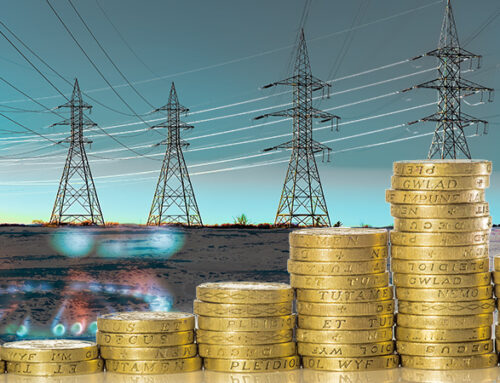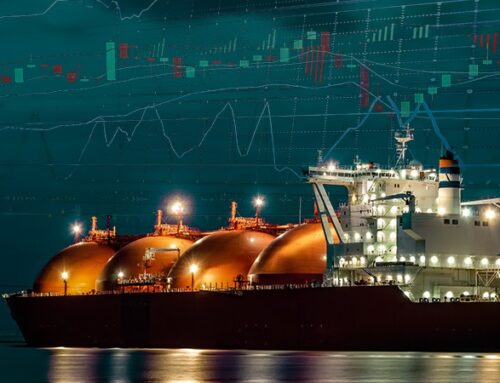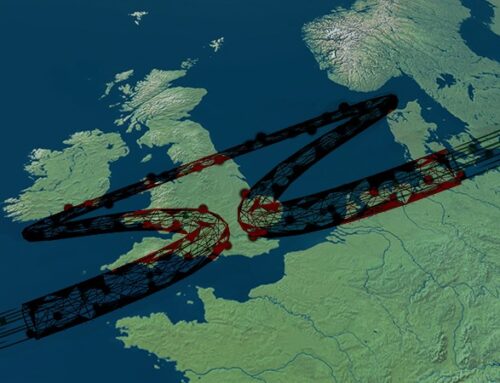Today Centrica announced record profits of £3.3 billion (actually the company booked a statutory loss after revaluing its hedging book, but this is an accounting quirk due – more of which later). The outrage has been predictable with the company being accused of profiteering and securing “unearned” profits. Simon Francis, co-ordinator of the End Fuel Poverty Coalition, said Centrica’s profits were built “on the backs of older people, young families and the disabled suffering in cold damp homes this winter”. Sharon Graham, the general secretary of the Unite union said the profits were “obscene”.
I have been invited to do various interviews to discuss these results and am at risk of coming across as a Centrica superfan – I’m not, I just think Centrica is being criticised for the wrong things (and not criticised for things it should be).
First of all, the upstream profits are not “unearned”. Yes, they have jumped as a result of price increases due to the war in Ukraine, but these price rises came after years of gas prices which were low both in outright terms and in terms of volatility. This reduced profits both on Exploration & Production (“E&P”) activity and the storage business, which closed in 2017 after required investments in well integrity were deemed uneconomic due to the underlying lack of profitability.
Oil and gas production is both technically challenging and dangerous. Operating drilling equipment is one of the most dangerous jobs around – it is hugely disrespectful to the people doing these jobs to describe the results of their efforts as “unearned”. Also, up to 70% of exploration wells turn out to be dry, and no-one compensates energy companies when this happens, this is a cost they have to absorb themselves.
“This is a betrayal for British Gas customers across the country who are struggling to keep their heating on. Once again the government’s failure to implement a proper windfall tax is allowing oil and gas businesses to make billions off the back of hardworking families,”
– Ed Davey, leader of the Liberal Democrat Party
Secondly, Centrica is not profiteering. The high prices charged to end consumers are approved by Ofgem to create a level playing field that allows for a competitive market, and profits in the energy supply business were down by 38% despite an increase in customer numbers, totalling just £72 million. Of course in a world where the capped default tariff is the cheapest available, this competition is severely constrained, but the is not Centrica’s fault. Were Centrica to use its upstream profits to cross subsidise the retail business it could force every other supplier out of the market and revert to monopoly status. It is unlikely to be allowed to do this, so people should really stop with the accusations of profiteering.
“The retail energy market is a pretty rotten place to be – contrary to popular belief that energy companies are ripping us off left, right and centre. If they were, then half of them wouldn’t have gone bust, or withdrawn from the market, in the past couple of years. It is a business of thin margins and endless hassle from regulators and consumer groups (although disgracefully late in the case of Ofgem’s failure to pick up on what British Gas was doing before a piece of investigative journalism by the Times). Retail energy forms have turned to heavy-handed debt-collection practices in order to try to stay in business – although there is no excuse in Centrica’s case because it can prop up its retail side from its wholesale profits,”
– Ross Clark, writing in The Spectator
Centrica has recently attracted severe criticism for the forced installation of prepayment meters, but again, this criticism is overblown. All suppliers do this because they are entitled to be paid for the energy they supply. It is clear there are serious flaws in the process – suppliers should ensure the information supporting warrant applications is correct – this is a legitimate criticism of British Gas AND its competitors, but the courts should not approve warrants in bulk without scrutiny, debt collection agencies should not have incentive structures that encourage harming vulnerable consumers and Ofgem should not allow suppliers to charge more for prepayment tariffs since in the world of smart meters I do not believe they actually do have a higher cost to serve.
Where Centrica has genuinely failed this year is in the British Gas Services and Solutions segment which includes boiler insurance and repair schemes which have been performing badly. The company has apparently suffered with low staff numbers and high numbers of staff absences, combined with a higher workload as customers deferred works during covid which they then wanted to be carried out during 2022. There have been terrible stories of households being left for weeks without heating and hot water as the company refused to farm out works to other boiler repair companies. This is genuinely unacceptable, and although the reported complaints per customer have only seem marginal increases over the past year, this does not mean the company has done well. It is absolutely legitimate to say that Centrica could and should have used some of the additional upstream income to pay for sub-contractors to boost the boiler repair workforce.
Finally, it should be remembered who owns Centrica. One commentator today suggested that Centrica shareholders were using the increased dividends to heat their swimming pools – this seems unlikely since only about 13% of shares are in private hands, largely a legacy of the privatisation of British Gas in the 1990s, meaning many of these shareholders are not wealthy individuals. The largest portion of Centrica shares is held by institutional investors – as a FTSE-100 listed company the shares form part of many pension funds and equity ISAs – it is largely pensioners and people with ISAs who will benefit from these increased Centrica dividends, not hypothetical fat cats. In 2020 Centrica suspended its dividend altogether to preerve cash, something people have been quick to forget.

Energy Marketing & Trading has the highest revenues and is a key driver of profits
Turnover in the Energy Marketing & Trading (“EMT”) segment saw a huge increase on the back of higher underlying energy prices (the same was true in the retail supply business where revenue growth was primarily due to rising wholesale prices). This is the part of the Centrica business in which I worked between 2014 and 2016. EMT was the second largest contributor to Centrica’s record profits, seeing operating profit grow from £70 million last year to £1,400 million this year. EMT manages the company’s commodity exposure, provides market access to third parties, primarily for renewable energy producers, and manages the LNG portfolio.
More working capital was deployed in the business in 2022, supporting investment in gas inventory for the storage and LNG positions. Centrica was able to trade profitably around its contracted pipeline and interconnector positions across Europe moving gas and power between markets, benefitting during periods of significant price dislocations. Wider and more volatile seasonal gas spreads saw increased profitability from gas storage positions. Centrica also has one of the largest third-party renewable energy portfolios in Europe, creating what it describes as “an advanced, cross-European virtual power plant”. Capacity under management, including renewable generation, batteries and combined heat and power plants, increased to 15.4 GW from 14.6 GW of which approximately 75% is renewable technologies.
The LNG business was profitable, despite having sold forward all its cargoes from the Cheniere contract for 2022 delivery in times of lower geographical spreads. In total EMT traded 284 physical cargoes in 2022 and signed a Heads of Agreement with Delfin to take 1 million tonnes of LNG from its floating facility in the Gulf of Mexico (the final agreement is being worked up with operations expected to begin in 2026).
Upstream earned huge operating margins of 53%
Despite earning modest revenues of “just” £3.3 billion, operating profit was the largest of any segment at £1,793 million – an operating margin of over 53%. E&P production was flat after adjusting for the sale of Spirit Energy which saw actual production fall by 32%. Production of the tail reserves from Rough increased by 9% to 3.2 mmboe, an activity which stopped when Rough re-opened as a storage facility in September.
Centrica’s share of nuclear generation volumes of 8.7 TWh was 5% higher than 2021, despite the closures of Hunterston B in January and Hinkley Point B in August, reflecting improved plant reliability. Operating profit for nuclear was £724 million, compared with a loss of £38 million last year, due to higher wholesale electricity prices.
Retail energy supply business profits fall 39%
Despite a 4% increase in customer numbers, operating profit for British Gas Energy fell from £118 million in 2021 to £72 million in 2022. Complaints per customer jumped from 8.5% to 14.4%. With over 7.5 million domestic and just under 0.5 million small business customers, British Gas is still the largest supplier in the market.
Performance declined due to the impact of high wholesale prices, as well as additional IT costs as a new system has been introduced and is running in parallel with the old system, temporarily increasing operating costs. Hopefully the new system will improve the customer experience as intended. There was a positive impact from warmer than expected temperatures in the first half of 2022 which allowed hedges to be sold back at higher prices.
Should Centrica cross-subsidise the retail business?
Almost all of the Upstream revenues came from intra-company trades, in other words, Centrica is using its own production to supply its business and domestic customers. Centrica doesn’t provide a segmental breakdown of its cost of sales, but does provide the gross margin which is turnover less cost of sales. From this analysis we can see that British Gas Energy’s cost of sales was £11,982 million (revenues of £13,096 million less gross profit of £1,114 million). As £3,261 million of the revenues in the Upstream business came from sales to other business segments, this implies that only 27% of British Gas Energy’s gas and electricity comes from Centrica’s own production.
If Centrica were to sell this at half price to its residential customer business (ie for around zero operating profit) it could reduce costs consumers by about £1.6 billion or £215 per year each. Centrica supplies about 27% of households, so these people would then benefit from a significant discount compared with the rest of the market…would that be considered fair? If it were to donate the EMT profits it could offer a discount of £68 to all other households to encourage them to switch to British Gas.
Of course, there is no reason for Centrica to do this – since prices are highly regulated and margins are low, there is no reason for Centrica to want to take over the entire market, but it could potentially borrow the £4.4 billion needed to give all households a £215 discount for his year, in the expectation that having eliminated the competition it could raise prices and recover this investment in the future, possibly by insisting customers commit to multi-year deals in order to qualify for the discount. When people call for Centrica to use its profits to subsidise households, this is what they are asking for – either a quarter of households benefit from a large discount and the rest would not, or it could offer discounts to everyone and force all other suppliers out of the market. I struggle to see how either option is desirable.
The big problems with the retail segment are with the market structure itself which is in dire need of wider reform. We really need to allow energy suppliers to earn higher profits so that they are able to afford to both improve customer service and develop innovative new business models. British Gas Energy had an operating profit margin of just 0.55% in 2022, while food retailers earn around 2% (Tesco has 3.3%, Aldi 2.1%, Sainsbury’s 0.0%, Waitrose 2.0%). We also need to see the costs of green levies, smart meter installations, insulation for homes, and the Warm Homes Discount to be removed from energy bills to general taxation (which is not a circular argument since many low income households do not pay income tax so would actually see an improvement in their finances from such a move).
Judging Centrica and other energy companies fairly
I was asked today whether Centrica CEO Chris O’Shea should forgo his bonus of over £1 million as he did last year. I have no idea whether O’Shea is personally doing a good job or not, but Centrica is a FTSE-100 company and needs to be able to attract and retain top talent in its senior leadership team. This will be difficult to achieve if the CEO is expected to forgo a bonus in good years as well as bad – indeed it renders the entire idea of a bonus meaningless and would push up salaries while removing the incentives for good performance.
The question should be, given the overall performance of the business – not just the high earnings in Upstream and EMT, but the increasing levels of complaints in the British Gas businesses, the adverse publicity around pre-payment meters which reflects mis-management of the relationship with collection agents, and the largely ignored scandals in the boiler installation and servicing business, have the CEO’s performance targets been met. I can’t answer that, but the Centrica board should have set detailed targets that go beyond the bottom line numbers. The job of the CEO is to ensure the company operates on a footing which will support performance in years when market prices are low as well as high, and this means getting the basics right. This is not happening in the boilers business and is only partly happening in supply where wider industry problems are probably a bigger driver of outcomes.
Energy companies are a vital part of the economy. Oil and gas producers produce products that are essential to every day life, not just as fuels, but as feedstocks – plastics, clothing, and many other products are made from oil, while fertiliser is made from methane. The economic collapse in Sri Lanka last year illustrates what happens when countries decide not to use synthetic fertilisers – agricultural yields were decimated significantly contributing to the economic failure. We really need to get away from the narrative that energy companies should not earn profits. If we do not want energy companies to be profitable, we should nationalise them, but then they are likely to be less efficient: the British nationalised energy industry in the years between the Second World War and privatisation in the 1990s was characterised by high costs and high inefficiency.
Energy companies are now where bankers were fifteen years ago – the bogeymen of the market. As with the bankers, this is largely unfair…the market is full of people working very hard in often adverse conditions, also often with little reward. This year the rewards are likely to be higher, but this needs to be put in its proper context. Unless we intend to give tax breaks and subsidies when energy companies have bad years, we need to calm down when they have good years. Centrica is not responsible for the broken retail market or for the current problems with energy affordability, but like most companies there are things it could do better. That is the basis on which it should be judged.
Note on accounting rules
Despite all of the above, Centrica will actually record a net loss for 2022. This is down to accounting rules which force it to value certain hedging transactions as derivatives that must be marked-to-market (“MTM”) rather than recognising them as economic hedges for underlying business positions which are not.
“Primarily because some of these trades include terms that permit net settlement, they are prohibited from being designated as ‘own use’ and so IFRS 9 ‘Financial Instruments’ requires them to be individually fair valued… Movements in this provision do not reflect the underlying performance of the business because they are economically related to both the hedges and forecast future profitability of the supply contracts,”
– Centrica plc
The introduction of IFRS 9 meant many companies stopped entering into derivates contracts that did not receive hedge accounting treatment despite being entered into for genuine economic hedging purposes. Only the most vanilla transactions qualify, and, because having to MTM hedges but not the underlying business exposures creates significant accounting volatility, many companies avoid it. Centrica has prioritised effective hedging despite the impact on its accounts where a £3.3 billion operating profit is turned into a £240 million operating loss due to a downward adjustment of £3.4 billion in the value of hedges.
This is an area where accounting rules could do with being changed. They were introduced to restrict the amount of risk being taken by companies which were being sold complex derivatives they did not fully understand, often leading to significant losses. But they have had the effect of discouraging legitimate hedging activities, or creating significant accounting volatility which can make the statutory accounts misleading. This is why Centrica chooses to disclose its underlying business performance separately to the statutory performance, so that investors and the market more broadly can understand the actual performance of the business.






And imagine where these accounting rules would leave the public should the company make a faulty bet the coming years.
Then they will have a tax-deduction for 2022, if I presume correctly about the Brittish tax-rules. And then a banktrupt will leave the country with a negative tax-income instead of taxes being paid now to avoid such accounting juggling.
The same goes for Denmark – it looks to be possible to find ways of mitigating taxes up front – which leaves the risks on society imo.
A company is unlikely to fail due to hedge accounting rules, but it might take a very simplistic approach to hedging that restricts profits. Few companies would choose not to hedge at all, but the are more likely to enter into very simple hedges with minimal optionality in order to secure hedge accounting treatment which might be economically inefficient.
The Treasury is smarter than that though – taxes are not based on accounting profits but on specific tax rules, so is less dependent on the quirks of accounting rules, or a company’s choice of accounting policies.
A clear well written post, which should be sent to politicians of all parties
Thanks Donald!
+1
Profit! You’ll never win an argument on the subject of profit. Too much, too little, just right — there’s no space for an agreeable profit when it comes to the basic politics of the Left. Profit is a nasty word and there’s very little you can do about it.
I do try. I like to point out that profit means simply that an enterprise produced more than it consumed, which is a necessary condition for it to continue. How can losses possibly be virtuous? They represent wastage of resources, they are unsustainable. How can anyone defend loss-making? They can’t. They conveniently ignore it
Despite this logic I doubt whether I have ever convinced any opponent of profit-making. It’s in their bones or their DNA or some other secure hiding place. We just have to live with some folk hating profit. Part of the cost of doing business, as they say.
I do wish more people, particularly those with credibility (as you have) would avoid the politicised argument that Ukraine is the only reason we are staring at higher energy costs. The lack of investment in hydrocarbon production and infrastructure predates the war by many years. Until the public gets that, the netzero lunatics will get away with destroying our economy, life styles and freedom. Netzero is simply about control as we are sucked into a zero fun future, while most of the rest of the world looks puzzled … and siezes the moment to replace us. All in the name of feeble ‘science’ and hopeless computer models.
Yes our emissions are tiny compared to the big polluters and anything we do will have very little effect if any on the climate.
I don’t think that places like China, Russia, India will care one bit about polluting the atmosphere as long as hydrocarbons help maintain their economies
Presumably they’ve a hefty windfall tax bill?
I don’t fully understand every aspect of that post but, in general, I agree with the sentiment. It has been valuable to this country and the world to have successful enterprises doing all the donkeywork in exploration and drilling for fossil fuels. There is bound to be volatility in this area as reserves become depleted. What I would like to see is massive investment in wind and energy storage, which should be a much less risky enterprise.
In the meantime though, the oil and gas companies need to make profits. If they disappear we are likely to suffer bigger problems.
Unfortunately the only storage technology that can store surplus wind is pumped hydro and it’s very expensive to build. It’s also not at all clear we have the geography for it in terms of valleys we can flood for the reservoirs. Batteries etc cannot provide backup for wind because they run out too quickly (1-4 hours) and low wind conditions can persist for days or even weeks.
In the near term it’s actually better to stop building windfarms because we’re struggling to incorporate the energy they provide (and they are creating grid stability issues) and use the money instead to cut heat losses in homes. (Assuming we lack the funds to do both at the same time).
A very good analysis
Thanks for your reply. I have been doing my own research into other technologies available for storage. The two that seem to be most suitable for the UK are compressed/liquefied air and, possibly suited to industrial processes, high temperature thermal. That leads on to what I perceive as the elephant in the room, domestic thermal. My own 35 year old GEC Nightstor 100 is still storing up to 100kWh of off peak generated energy which is circulated through conventional water filled radiators on demand. A newer version which uses the same technology is now reaching the market. One advantage (???) of this technology is that the customer pays for the hardware and it can replace gas boilers.